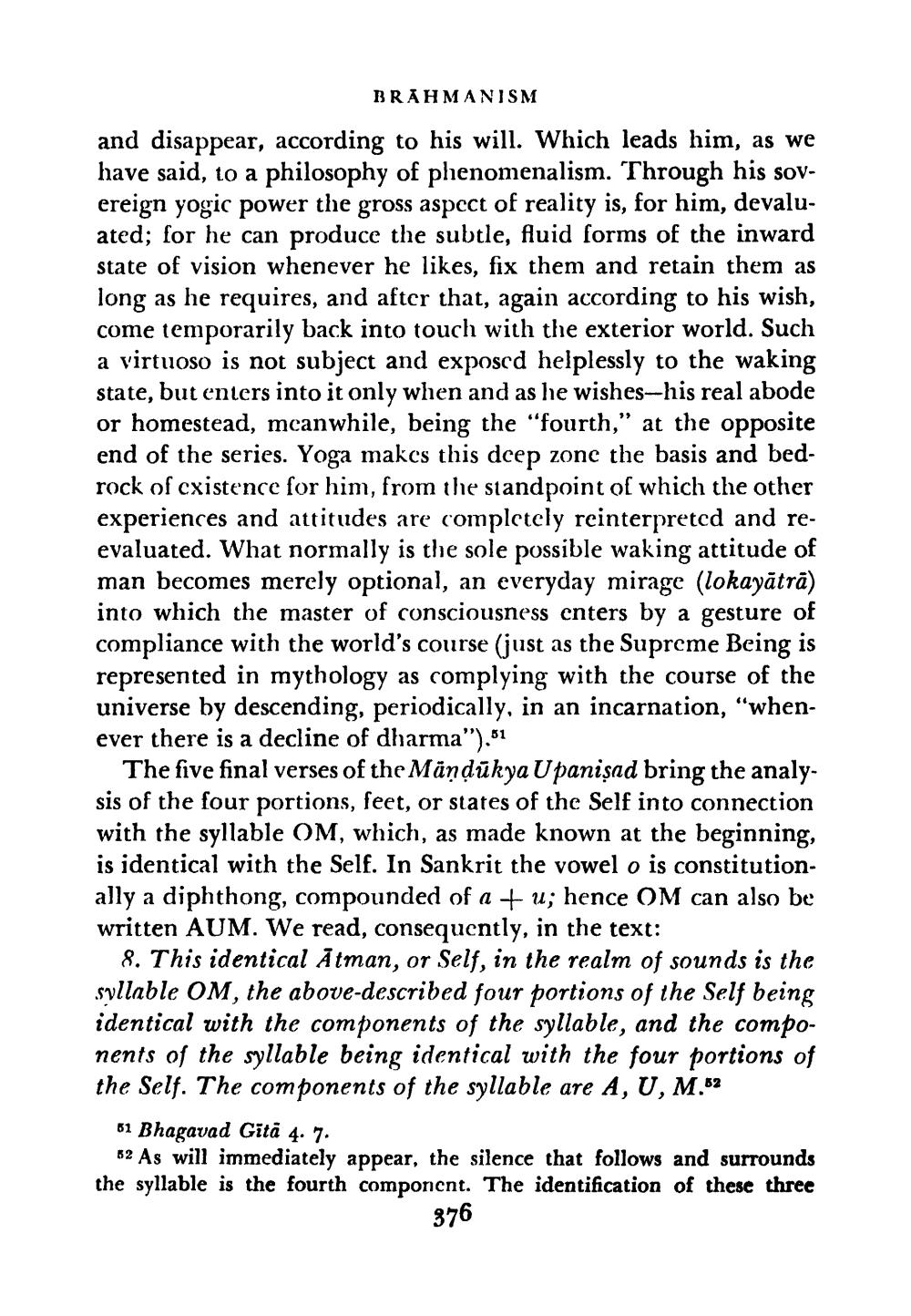________________
BRAHMANISM
and disappear, according to his will. Which leads him, as we have said, to a philosophy of phenomenalism. Through his sovereign yogic power the gross aspect of reality is, for him, devaluated; for he can produce the subtle, fluid forms of the inward state of vision whenever he likes, fix them and retain them as long as he requires, and after that, again according to his wish, come temporarily back into touch with the exterior world. Such a virtuoso is not subject and exposed helplessly to the waking state, but enters into it only when and as lie wishes-his real abode or homestead, meanwhile, being the "fourth," at the opposite end of the series. Yoga makes this deep zone the basis and bedrock of cxistence for him, from the standpoint of which the other experiences and attitudes are completely reinterpreted and reevaluated. What normally is the sole possible waking attitude of man becomes merely optional, an everyday mirage (lokayātrā) into which the master of consciousness enters by a gesture of compliance with the world's course (just as the Supreme Being is represented in mythology as complying with the course of the universe by descending, periodically, in an incarnation, "whenever there is a decline of dharma").51
The five final verses of the Mändūkya Upanişad bring the analysis of the four portions, feet, or states of the Self into connection with the syllable OM, which, as made known at the beginning, is identical with the Self. In Sankrit the vowel o is constitutionally a diphthong, compounded of a + u; hence OM can also be written AUM. We read, consequently, in the text:
8. This identical Ātman, or Self, in the realm of sounds is the syllable OM, the above-described four portions of the Self being identical with the components of the syllable, and the components of the syllable being identical with the four portions of the Self. The components of the syllable are A, U, M.62 81 Bhagavad Gita 4. 7.
52 As will immediately appear, the silence that follows and surrounds the syllable is the fourth component. The identification of these three
376




